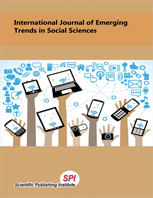Demystifying workplace emerging trends in the Kenyan public service: Perceptions from Kibabii University
DOI:
https://doi.org/10.55217/103.v18i2.941Keywords:
Emerging trends, Performance management, Public service, Task performance.Abstract
This study explored public service employees' awareness and adoption of emerging trends in task performance within the Kenyan public service. A descriptive, cross-sectional survey was conducted with 50 staff responding to an online questionnaire. Quantitative data was analyzed using SPSS, while qualitative data underwent thematic analysis. Findings showed that 96% of respondents recognized "remote working" as the most familiar trend, followed by "hybrid working" and "Artificial Intelligence" at 88%. "Micro Learning" (66%) and the "gig economy" (56%) had lower recognition. Despite this, 72% confirmed the integration of "remote working" and "Artificial Intelligence" into service delivery, with "hybrid working" and "Micro Learning" also gaining traction. "Gig economy" adoption remained minimal, while "hybrid working" was the most widely implemented (62%). Thematic analysis identified four key effects of trend integration: Efficiency and Productivity, Flexibility and Work-Life Balance, Inclusion and Diversity, and Challenges and Concerns. The study concluded that while awareness and adoption of emerging trends are significant, challenges such as infrastructure, training, policy reforms, and organizational adaptability persist. Future research could explore employee attitudes toward job security amid these transitions.


